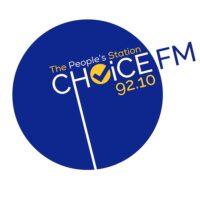
Is anything better now about radio than the radio we grew up on?
Ross on Radio readers know that I spend a lot of time trying to maintain my optimism about the business. Suggesting that any aspect of radio might have gotten better seems even more willful.
What has gotten worse about radio is legion. What is distressing about radio now isn’t just “a column for another week”; sometimes it feels like it’s a column topic for every week.
But “what’s better” is not a question without an answer, at least as a listener and consumer of radio. The answer manifests itself in multiple ways, but it almost always comes down to “choice,” usually beginning with my discovery of streaming radio in 1997.
What’s better for me is the access to 100,000-plus radio stations. About 90% of what I want to listen to is available, even with some radio geo-blocked.
I don’t miss the road trips I used to have to make to hear radio (although I do wish I could have a better radio experience on the road trips that I still do make).
I don’t miss being dependent on what owners in my market — strangely under-radioed in many ways for market No. 1 — are willing to offer. I have Country. I have Alternative. I have R&B Oldies, Country Oldies, and ’60s Oldies, even if no sales manager here wants to offer them.
I used to scour Billboard’s Hits of the World chart, maybe finding one or two of the songs I read about in an import bin, the others existing to me only as names until many years later. I don’t miss that. Or calling a request line that’s never answered to find out what a song is.
I appreciate the ability to time-shift audio. For most people, that means podcasting. For me, it also means being able to tape radio and hear what I need to hear without 14 minutes of commercials, and without sitting through either “Blinded by the Light” or “Blinding Lights” again.
I heard and liked “Calm Down” by Rema & Selena Gomez months before it became a hit in America. Eighteen months later, it is still in power here and sometimes I leave it on. But if I want to hear the hit that will (perhaps) be here three months from now, I have options.
If I only wanted to hear the radio I grew up on, or the contemporaries of those stations, I could listen to it all day, often in real time. (That’s also an improvement over waiting for airchecks to come in the mail once a month.) But I don’t only want to hear that radio, and I have options.
I write about the frustrations of the streaming experience, but I can usually get around them, because of time-shifting and because I am listening to Australia’s C91.3 this afternoon, allowing me to avoid our particularly American radio problem. That I continue to rail about it is because your listeners might find something other than radio as an alternative.
For most people, “more choice” and streaming have become synonymous with radio’s decline. More choice is the thing that keeps me listening to more radio (even with streaming music in the mix as well).
The thing that is better to me about radio is the thing that is perplexing to the broadcast industry. Only SiriusXM has come close to harnessing both traditional radio experiences and a wide-enough choice of them into something people will pay for. But pay for it they do. They might even listen to the broadcast dial we’re offering for free if we made it easier for them.
Some of the things that were supposed to get better about radio did not. Few people feel as if they’ve seen the promised benefits of PPM, voice-tracking, or economies of scale. Broadcasters understand the value of selling a 45-plus audience now, but few have cracked the code. The ability to make a living with four minutes of spots per hour has materialized, but not for us. We watch that flying car whiz by with somebody else driving.
They are often cold comfort, but reminders that broadcasters still “do radio” better than anybody else still occur regularly. The pending shutdown of Amazon’s AMP reinforces that. I thought AMP had improved by the end, but in allowing users to do “shows,” but not to produce or embellish them, AMP showed either a lack of understanding or maybe even contempt for what radio does well.
Radio still has a near monopoly on the best parts of the radio experience — if not always the ability to consistently produce it. But we also offer more choice than anybody else. Even if we were to offer a smaller number of better experiences, it would still be far more listener choice than anybody. We need to recognize that — something that is understandably harder for broadcasters who are mired in things that have gotten worse, or watching them from the sidelines — and then communicate it to listeners.
This story first appeared on radioinsight.com
